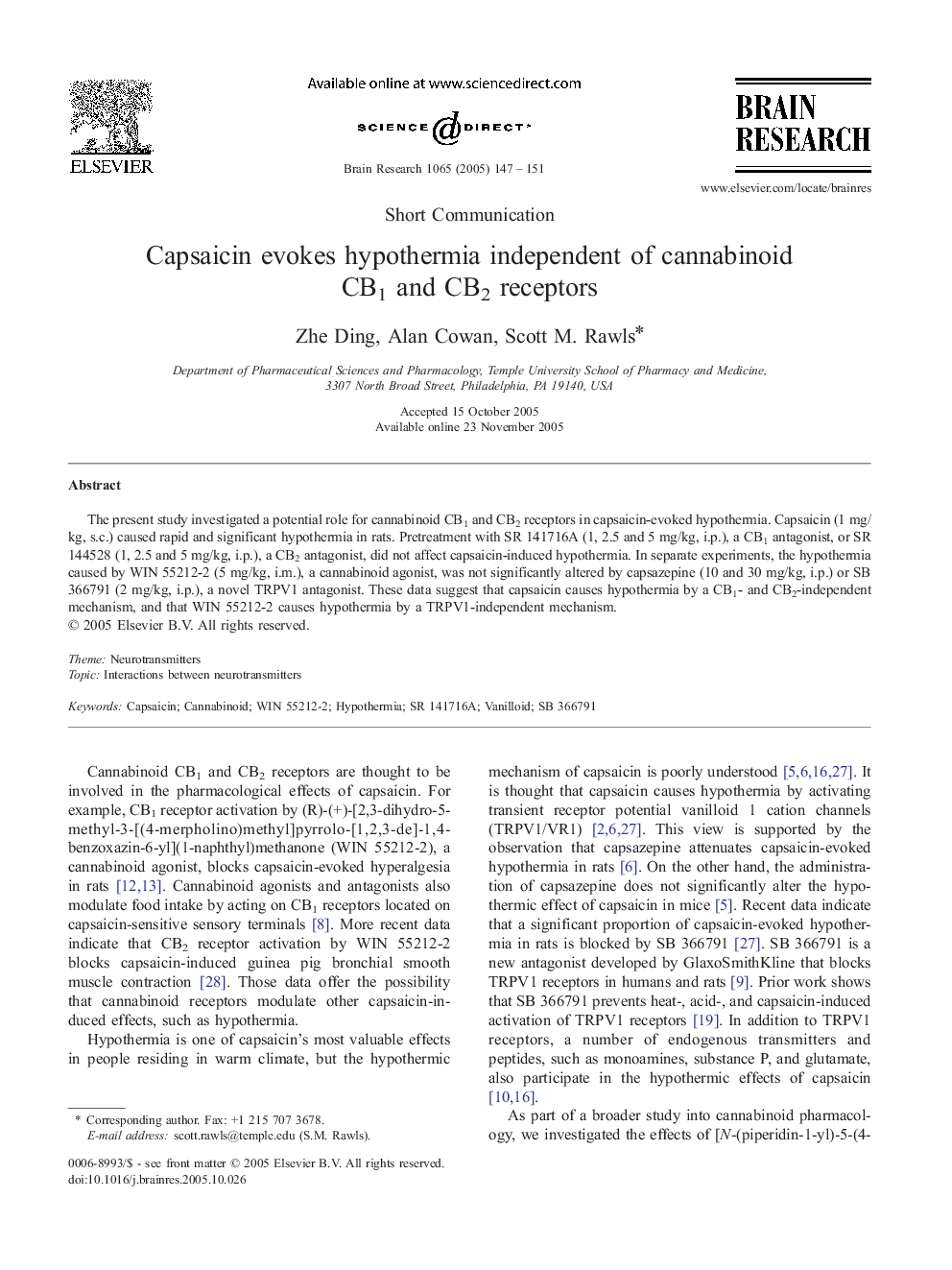| Article ID | Journal | Published Year | Pages | File Type |
|---|---|---|---|---|
| 9415709 | Brain Research | 2005 | 5 Pages |
Abstract
The present study investigated a potential role for cannabinoid CB1 and CB2 receptors in capsaicin-evoked hypothermia. Capsaicin (1 mg/kg, s.c.) caused rapid and significant hypothermia in rats. Pretreatment with SR 141716A (1, 2.5 and 5 mg/kg, i.p.), a CB1 antagonist, or SR 144528 (1, 2.5 and 5 mg/kg, i.p.), a CB2 antagonist, did not affect capsaicin-induced hypothermia. In separate experiments, the hypothermia caused by WIN 55212-2 (5 mg/kg, i.m.), a cannabinoid agonist, was not significantly altered by capsazepine (10 and 30 mg/kg, i.p.) or SB 366791 (2 mg/kg, i.p.), a novel TRPV1 antagonist. These data suggest that capsaicin causes hypothermia by a CB1- and CB2-independent mechanism, and that WIN 55212-2 causes hypothermia by a TRPV1-independent mechanism.
Keywords
Related Topics
Life Sciences
Neuroscience
Neuroscience (General)
Authors
Zhe Ding, Alan Cowan, Scott M. Rawls,
